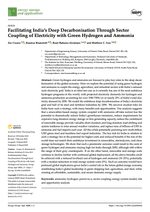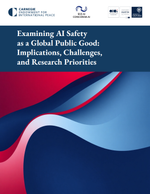Resource and Energy Economics
View Journal Article / Working PaperThis paper looks at whether bribes for electricity connections affect electricity reliability. Using detailed firm-level data, we estimate various specifications based upon repeated cross-sections and means-based pseudo-panels to show that bribes are closely related to poorer electricity reliability. The authors find that the propensity to bribe for an electricity connection is associated with an increase of 14 power outages per month and a 22% increase in annual sales lost due to power outages on average. The results parallel a tragedy of the commons story: electricity, which exhibits common-pool resource characteristics, suffers from overexploitation as self-interested individual firms rationally bribe for electricity, creating negative impacts in aggregate on the overall quality of the resource. Given the importance of electricity reliability for economic growth and development, the findings imply that improving oversight and enforcement measures at the consumer level that target the reduction of bribery for electricity connections could contribute to growth and development.




